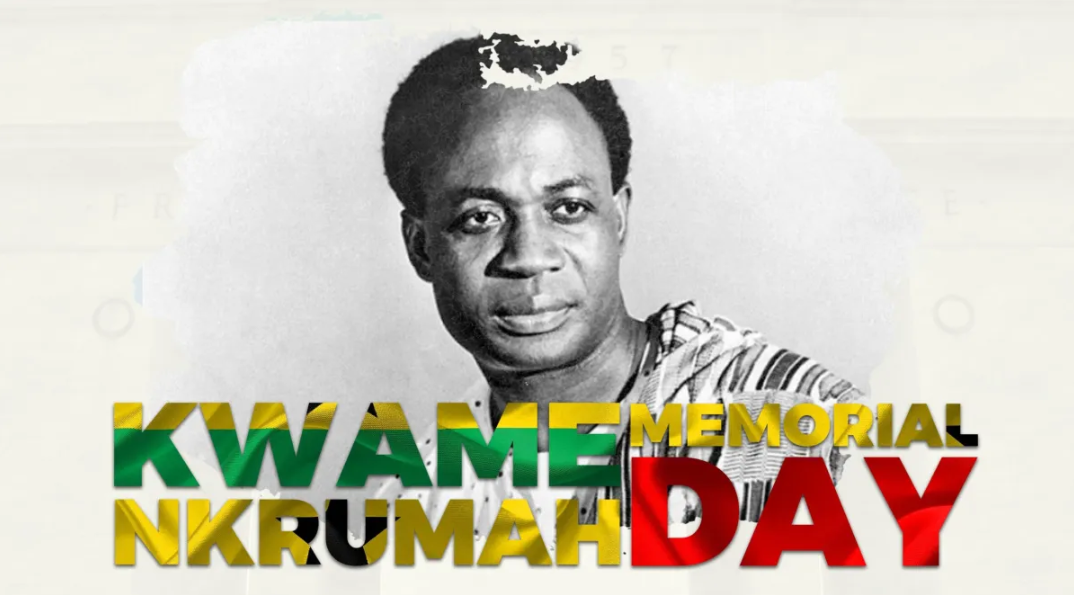Kwame Nkrumah Day: The Voice That Sparked a Continent
By: Chimdindu Ken-Anaukwu
Every year on September 21, Ghana honors Kwame Nkrumah Memorial Day. But this is no ordinary remembrance. It’s not just the story of one man, it’s the story of a continent that refused to remain silent. Nkrumah wasn’t just Ghana’s first Prime Minister and President. He was the drumbeat of African independence, the megaphone for Pan‑Africanism, and a voice that carried across the seas: “Seek ye first the political kingdom, and all else shall be added unto you.”
The Struggle: Breaking Colonial Chains
Born in 1909 in Nkroful, Nkrumah grew into the leader of the Convention People’s Party (CPP). At a time when the Gold Coast was under British rule, he mobilized farmers, traders, and students under one cry: “Self‑government now!” His leadership led Ghana to become the first sub‑Saharan African country to gain independence in 1957. This was not just a Ghanaian victory, it was a spark that inspired independence movements across Africa, from Nigeria to Kenya, from Tanzania to South Africa.
The Vision: Africa for Africans
Nkrumah’s dream was bold: a united Africa, free from colonial exploitation, standing shoulder to shoulder on the world stage. He envisioned education for every child, industries built by African hands, and languages spoken without shame. His Pan‑African ideals birthed institutions and inspired leaders for generations. To him, freedom wasn’t complete until Africans could own their culture, their economies, and their voices.
Language and Identity: The Unfinished Work
Nkrumah knew political freedom was only the first step. The deeper battle was cultural, against the erasure of our stories, names, and tongues. Colonialism didn’t just take resources; it tried to take our identity. That’s why, even today, speaking Twi, Ga, Ewe, Hausa, or Fante is an act of defiance, a continuation of Nkrumah’s mission. Every time we teach our children to greet in our own languages, we say: we are still free.
The Mausoleum: A Living Memory
No Kwame Nkrumah Day is complete without mentioning the Kwame Nkrumah Mausoleum in Accra. Built on the site where he declared independence, the mausoleum is more than a monument, it’s a living classroom. Walk through its halls and you’ll see statues, photos, and relics that capture Ghana’s fight for freedom. For many Ghanaians, visiting isn’t just about history; it’s about reconnecting with the spirit of resilience that Nkrumah embodied.
Conclusion: The Torch Is Ours
Kwame Nkrumah Day isn’t just about looking back, it’s about carrying the torch forward. His call for independence now echoes as a call for cultural independence. The fight for freedom continues every time we resist the slow death of our languages.
So today, remember Nkrumah not just with speeches, but with words in your own tongue. Because when we speak our languages, we do more than honor our ancestors, we secure our future.
FAQ: Kwame Nkrumah Day
1. Who was Kwame Nkrumah?
Ghana’s first Prime Minister and President, and a key figure in African independence and Pan‑Africanism.
2. Why is September 21 celebrated?
It marks his birthday, honoring his role in Ghana’s and Africa’s liberation.
3. What does Pan‑Africanism mean?
The belief that Africa’s nations must unite politically, economically, and culturally for true independence.
4. How does language connect to Nkrumah’s vision?
He saw cultural identity, including African languages, as essential to completing the freedom struggle.
5. How can I honor this day?
Learn or share a phrase in your mother tongue, teach someone a proverb, and keep African identity alive—just as Nkrumah intended.


